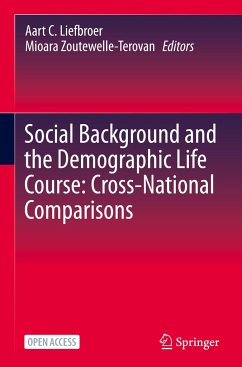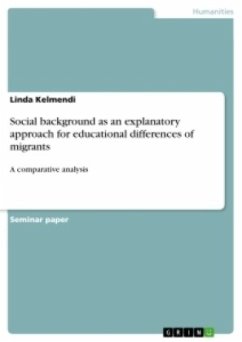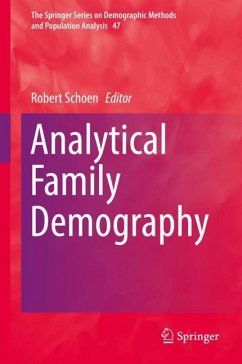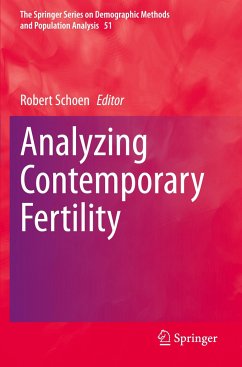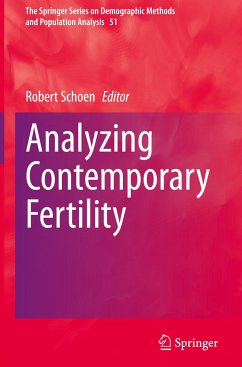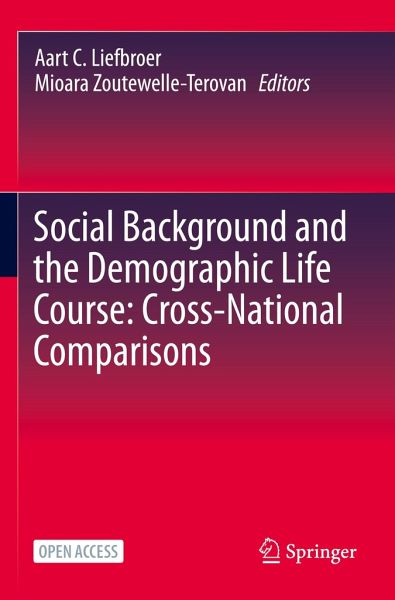
Social Background and the Demographic Life Course: Cross-National Comparisons
Versandkostenfrei!
Versandfertig in 6-10 Tagen
31,99 €
inkl. MwSt.

PAYBACK Punkte
16 °P sammeln!
This open access book examines how childhood social disadvantage influences young-adult demographic decision-making and later-life economic and well-being outcomes. This book in particular focuses on testing whether the consequences of childhood social disadvantage for adult outcomes differ across societies, and whether these differences are shaped by the "context of opportunities" that societies offer to diminish the adverse impact of economic and social deprivation. The book integrates a longitudinal approach and provides new insights in how the experience of childhood disadvantage (e.g. low...
This open access book examines how childhood social disadvantage influences young-adult demographic decision-making and later-life economic and well-being outcomes. This book in particular focuses on testing whether the consequences of childhood social disadvantage for adult outcomes differ across societies, and whether these differences are shaped by the "context of opportunities" that societies offer to diminish the adverse impact of economic and social deprivation. The book integrates a longitudinal approach and provides new insights in how the experience of childhood disadvantage (e.g. low parental socio-economic status, family disruption) influences demographic decisions in adulthood (e.g. the timing of family-events such as cohabitation, marriage or parenthood; the risk of divorce or having a child outside a partner relationship; the exposure to later-life loneliness, poor health, and economic adversity). Moreover, using a cross-national comparative perspective it investigateswhether the relationships of interest differ across nations, and tests the "context of opportunities" hypothesis arguing that the links between childhood disadvantage and adult outcomes are weakened in societal contexts offering good opportunities for people to escape situations of deprivation. To do so, the book analyzes national contexts based on economic prosperity, family values and norms, and welfare-state arrangements.



